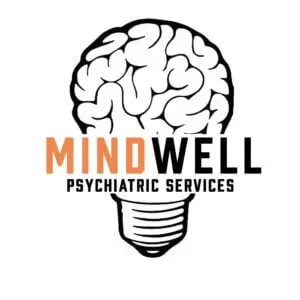Understanding different types of mental illness is key to improving mental health. Therefore, Mindwell Psychiatric Services aims to provide clear, easy-to-understand information about mental health issues. That is to say, different types of mental illnesses can vary a lot, affecting how people feel, think, and act. Common different types of mental illness include depression, anxiety, bipolar disorder, and schizophrenia.
Each illness has its own signs and causes. Knowing these can help manage them better. For instance, being aware of what to look for makes it easier to find the right help and support. Also, it helps others in the community understand and support those affected. Therefore, this guide will give you important insights into these conditions, helping to increase awareness and support for those who need it.
Overview of Mental Illness
Different types of mental illness include many different mental health conditions that affect how people feel and think. In other words, these conditions can make daily life tough and might cause problems with how we handle stress, relate to others, and make choices.
The Effects on Everyday Life
Different types of mental illness can change the way people live. For instance, someone with an anxiety disorder might feel scared or nervous often, not just in stressful situations. This can make normal activities like going to work or meeting friends very hard. Also, mental health disorders can affect physical health. For example, people with depression sometimes feel very tired and have trouble sleeping.
Mental Health in Daily Activities
Having different types of mental illness can make everyday things more challenging. People with conditions like panic disorder may have sudden feelings of intense fear that can come without warning. Therefore, this can make it scary to leave the house or be in crowded places. Similarly, someone with a personality disorder may have a hard time in relationships because of how they feel and behave toward others.
Caring for Mental Health
Taking care of mental health is important. Treatment can help a lot, and it often includes talking to a therapist, medication, and changes in lifestyle. Support from family and friends is also very important. That is to say, they can help provide understanding and make dealing with different types of mental illness easier.
In conclusion, different types of mental illness like eating disorder, anxiety disorders, and personality disorders impact life in many ways, but understanding and managing these conditions can lead to better health and more enjoyable lives. Learning about these conditions is the first step to helping ourselves or others live better with mental illness.
Different Types of Mental Illness
Mental illnesses deeply affect people’s lives and their overall well-being. So here, we explore several common mental illnesses, focusing on their symptoms, causes, and some usual misconceptions.
Depression
Symptoms and Causes
Depression involves more than feeling sad. That is to say, people with depression might lose interest in things they used to enjoy, feel tired all the time, and struggle to find motivation. Also, it often results from a mix of genetic factors, life experiences, and other personal issues. Genetic testing can help identify the genetic factors contributing to depression, providing insights that can guide more personalized and effective treatment strategies.
Prevalence and Misconceptions
Many believe depression is just a mood that someone can easily change, but it’s actually a complex medical condition. To clarify, it affects millions worldwide, showing the need for understanding and proper care to support mental health and wellbeing.
Anxiety Disorders
Symptoms and Causes
Anxiety disorders cause constant worry that doesn’t go away and can get worse over time. Also, symptoms might include feeling restless, having trouble concentrating, and experiencing rapid heartbeats. Therefore, these can stem from genetic traits, life events, or health issues.
Prevalence and Misconceptions
Anxiety disorders are very common, yet often misunderstood as just being nervous. So in reality, they are serious conditions that can disrupt daily life but can be managed with the right treatments.
Bipolar Disorder
Symptoms and Causes
Bipolar disorder is marked by extreme mood swings, from high moods where one might feel overly happy and full of energy (manic episodes) to low moods where one might feel very sad and lethargic (depressive episodes). So, these changes can be influenced by a mix of genetic and environmental factors.
Prevalence and Misconceptions
People often mistake bipolar disorder for simple moodiness. However, those with this disorder experience intense changes that can affect their daily life and need specific treatment.
Schizophrenia
Symptoms and Causes
Schizophrenia affects how a person thinks, feels, and behaves. That is to say, people might hear voices, see things that aren’t there, or believe others are watching them or want to harm them. Also, these experiences can stem from genetic and environmental factors.
Prevalence and Misconceptions
Some people think schizophrenia means having a split personality. Actually, it’s a disorder where people lose touch with reality, which affects their ability to function normally.
PTSD (Post-Traumatic Stress Disorder)
Symptoms and Causes
PTSD can happen after someone experiences a very stressful event. Symptoms include nightmares, flashbacks, severe anxiety, and uncontrollable thoughts about the event. To clarify, the direct cause is experiencing or seeing a traumatic event.
Prevalence and Misconceptions
There’s a misconception that PTSD only affects soldiers or those in combat. Actually, it can affect anyone who has experienced severe trauma.
Each different types of mental illness affects people differently but they all impact one’s health and well-being significantly. So, understanding these conditions, knowing the symptoms, and getting the right help is crucial.
It’s important for everyone to recognize these signs and support those who are affected, improving the care and support available to them. Therefore, utilizing a symptom checker can also be helpful in identifying potential mental health issues, such as anxiety and depressive disorders, attention deficit hyperactivity disorder, and seeking appropriate assistance, along with medical tests if necessary.
Treatment Options
When it comes to treating different types of mental illness, several effective methods can help individuals improve their health and quality of life. So here, we explore various treatment options including therapy, medication, lifestyle changes, and the power of a strong support network.
Understanding Treatment Choices
Managing different types of mental illness involves a range of strategies tailored to each person’s needs. Therefore, knowing what options are available is a crucial first step for anyone seeking help.
Therapy
Types of Therapy
Therapy is a key treatment for mental illnesses. So, it includes:
- Cognitive Behavioral Therapy (CBT): This helps people change negative thought patterns to improve their mood and behavior.
- Talk Therapy (Psychotherapy): Talking about your thoughts with a therapist can help find the root causes of mental distress.
- Group Therapy: Meeting with others facing similar issues can provide support and new perspectives.
Why Therapy Helps
Therapy can greatly reduce symptoms of mental health issues, like anxiety or sadness, by teaching new ways to handle difficulties, including adjustment disorders and affective disorder.
Medication
Using Medication
Medications are often necessary for treating severe symptoms of mental illness. So, these can include:
- Antidepressants and ketamine treatment for depression
- Antipsychotics for conditions like schizophrenia
- Mood Stabilizers for bipolar disorder
Consulting Experts
Always talk to a medical professional before starting any medication. Experts, including those from the National Institutes of Health, can guide you to the safest and most effective options.
Lifestyle Changes
Healthy Daily Habits
Making changes in daily life can support mental health treatments:
- Exercise: Regular physical activity boosts mood and reduces anxiety.
- Diet: Eating a balanced diet helps your body and brain function well.
- Sleep: Good sleep is crucial for mental health.
- Mindfulness: Practices like yoga or meditation can calm the mind.
Impact on Health
These habits help therapy and medications work better and can significantly ease symptoms of mental illness.
Support Networks
Getting Support
Support from others is essential. So, this can include:
- Family and Friends: Loved ones who understand what you’re going through can offer great emotional support.
- Support Groups: Connecting with others who have similar experiences can provide comfort and advice.
Support from others is essential. So, this can include:
- Family and Friends: Loved ones who understand what you’re going through can offer great emotional support.
- Support Groups: Connecting with others who have similar experiences can provide comfort and advice.
Encouragement to Connect
It’s important to build a network of support. Therefore, having people to turn to can make a big difference in handling mental health challenges.
Practical Advice
Seek Help Early
If you or someone you know is struggling with persistent issues like obsessions compulsions, or having troubling thoughts, reaching out for professional help is crucial. So, getting help early can improve recovery chances.
Stay Committed
Managing different types of mental illness is an ongoing process. That is to say, keeping up with treatment, staying informed about your condition, and having regular check-ups can lead to better health outcomes.
Addressing mental illness effectively involves a combination of therapy, medication, healthy lifestyle choices, and strong support systems. In other words, everyone’s path to managing their mental health is different, but with the right tools and support, improvement is possible. Also, encouraging those affected to seek and continue treatment is key to overcoming the challenges posed by mental illnesses.
Living with Mental Illness
Living with a mental illness can be tough, but there are many ways to make everyday life better. Therefore, this section provides simple tips on how to handle psychiatric disorders effectively.
Understanding Daily Management
Managing mental illness involves knowing what helps you feel stable and secure. So, here are some helpful strategies for day-to-day living.
Establishing a Routine
Why a Daily Routine Helps
Having a set routine helps a lot. So, it means doing things at the same time each day, like eating meals, exercising, and sleeping. Also, this can make you feel more in control and less overwhelmed.
Routine's Role in Stability
Sticking to a routine can calm the chaos that might trigger symptoms, especially for conditions like oppositional defiant disorder or anxiety. So, knowing what to expect each day provides comfort and can make challenges easier to handle.
Building Support
Connecting with Others
Support from family and friends is key. That is to say, regular talks and time with people who care about you can make a big difference. Also, for those with challenges in forming relationships, like with antisocial personality disorders, being part of community activities or therapy groups can help build connections.
Getting Professional Help
Support doesn’t just come from family and friends. For instance, counselors, therapists, and support groups offer professional guidance and understand the struggles of living with mental illness.
Health Management
Keeping Up with Healthcare
It’s important to regularly check in with therapists. That is to say, these visits make sure your treatment is working well and adjusts when needed.
Medication Management
For many, medication is essential. So, always take it as directed and talk to your psychiatrist in Las Vegas about how it’s working or any side effects.
Coping Skills
Mindfulness and Relaxation
For example, techniques like deep breathing, meditation, or yoga can help manage stress and improve mental health. That is to say, they are good tools for easing the mind and can be especially helpful for managing stress-related disorders, including factitious disorders.
Benefits of Exercise
Physical activity is great for your mood. Therefore, it helps lessen feelings of depression and anxiety and boosts overall well-being.
Adapting Work and Education
Adjusting Work and School Settings
Sometimes, you might need to change how you work or learn to better fit your mental health needs. So, this could mean talking to your boss or teachers about what helps you perform best.
The Editorial Process of Self-Understanding
Understanding your mental illness is empowering. Knowing more about your condition helps you recognize signs of trouble early and manage them better.
Dealing with different types of mental illness involves more than just medical treatment; it’s about creating a lifestyle that supports your mental health. So, establishing a stable routine, building supportive relationships, staying on top of healthcare, using coping strategies, and adapting your work and learning environments are all crucial steps. That is to say, by implementing these strategies, you can improve your ability to manage symptoms and enhance your quality of life, showing that you can lead a fulfilling life despite the challenges.
Mental Health Awareness and Education
Understanding different types of mental illness better is key to improving how we deal with mental health as a society. So, this section talks about why it’s so important to teach people about mental health and how it can help break down the stigma and provide better support for those affected.
Introduction to Mental Health Education
Mental health education is very important in both schools and workplaces. That is to say, it helps people understand different types of mental illness, making it easier for them to recognize symptoms and seek help without feeling ashamed.
Mental Health Initiatives in Schools
Teaching Young People
Schools are perfect places for mental health education. Therefore, programs that teach students about conditions like anxiety, depression, and panic attacks help them recognize these issues early. Also, this knowledge empowers them to get help and support their peers.
Training for Teachers
Teachers can play a big role in supporting students’ mental health. In other words, training programs teach them how to spot and respond to mental health issues, providing initial support until professional help can step in.
Workplace Awareness Programs
Creating Supportive Workplaces
Mental health education in the workplace can create more supportive environments. These programs might include workshops on managing stress, recognizing mental health problems, and the benefits of online therapy.
Getting Employers Involved
Companies that focus on mental wellness often see happier and more productive employees. These efforts usually emphasize balancing work and life, spotting stress early, and giving access to professional mental health resources.
The Impact of Increased Awareness
More Resources and Support
As more people understand different types of mental illness, the availability of resources and support improves. This includes better access to medical professionals, more accurate diagnosis and tests, and more funding for mental health services.
Reducing Stigma
Teaching people about mental health helps reduce the stigma around it. As knowledge increases, communities start to treat mental health just like physical health—something important that deserves attention and care.
Educating people about mental health is crucial for building a supportive society for individuals with mental health issues. Through school and workplace programs, and by increasing general awareness, we can provide stronger support and better resources.
This education also makes it easier for people to talk about and manage issues like binge eating or panic attacks, encouraging a culture where seeking help and getting the right treatment is seen as normal and important.
Preventive Measures for Mental Health
Taking steps to prevent different types of mental illness can help lessen their impact or even stop them from developing. So, this section discusses practical ways to promote mental health and possibly prevent mental health issues.
Introduction to Preventive Mental Health
Preventing different types of mental illness is about more than just avoiding disease. That is to say, it involves making choices that improve mental well-being and catching potential problems early.
Early Education and Awareness
Understanding the Signs of Mental Health Issues
Learning about mental health early on is key. Therefore, programs that teach people the signs of mental health issues, like major depression or obsessive-compulsive disorder, can make a big difference. Also, knowing what to look for helps people recognize problems early, either in themselves or others.
Why Early Education Matters
Teaching about mental health from a young age can help remove the stigma and make it easier for people to talk about and deal with these issues. To clarify, this early action can change the course of a mental illness.
Community Support Programs
Building Strong Community Support
Community programs are essential for preventing mental health problems. So, they provide support and resources to people who might be at risk, including those with known risk factors for mental health issues.
Creating a Supportive Environment
Having a community that supports mental health can encourage open conversations about it. Therefore, this is crucial for making people feel safe to seek help.
Lifestyle Factors in Mental Health Prevention
Healthy Habits
Eating well, staying active, and getting enough sleep are all crucial for keeping your mind healthy. That is to say, these habits can affect your biological factors, helping to keep both your body and mind in good shape.
Starting Healthy Routines
Encouraging routines that include nutritious meals, regular exercise, and good sleep can help prevent mental health issues like anxiety and depression from developing.
Preventive Screenings and Early Interventions
Importance of Mental Health Screenings
Regular screenings for mental health can catch problems early, before they become more serious. In other words, these screenings can lead to early treatments that are often simpler and more effective.
Benefits of Early Help
Getting help early can greatly reduce the severity of mental illnesses, improving outcomes in the long run and reducing the need for more intense treatments later.
Tips for Prevention
What Individuals and Communities Can Do
- Individuals: Keep up-to-date on mental health. So, regular check-ups, either self-done or by a professional, can help catch issues early.
- Communities: Provide easy access to mental health resources and education. Therefore, making sure everyone can get help easily can prevent many mental health issues from getting worse.
Encouraging Openness
Promoting open discussions about mental health struggles and successes can inspire others to take preventive steps or seek help early.
Preventive actions in mental health aren’t just about avoiding illness; they’re about building a healthier, more resilient community. So by educating people, strengthening community support, maintaining healthy lifestyles, and acting early when problems arise, we can lessen the impact of mental illnesses and improve overall mental health.
Conclusion
Promoting open discussions about mental health struggles and successes can inspire others to take preventive steps or seek help early.
Preventive actions in mental health aren’t just about avoiding illness; they’re about building a healthier, more resilient community. So by educating people, strengthening community support, maintaining healthy lifestyles, and acting early when problems arise, we can lessen the impact of mental illnesses and improve overall mental health.
FAQs
What are common mental illnesses?
Depression, anxiety disorders, bipolar disorder, schizophrenia, and PTSD are some common types.
How can I recognize mental illness in someone?
Look for signs like ongoing sadness, a lot of fear or worry, big mood swings, pulling away from friends or activities, and big changes in eating or sleeping habits.
Can mental illnesses be treated?
Yes, they can be treated with therapy, medicines, lifestyle changes, and support from others.
What should I do if I think I have a mental illness?
It’s important to talk to a doctor who can diagnose and help you find the right treatment.
Do lifestyle changes help with mental illness?
Yes, eating healthy, staying active, getting enough sleep, and managing stress can really help improve your mental health.
What does therapy do for mental illness?
Therapy helps you understand your thoughts and feelings, and teaches you how to cope in a healthy way.
How do I find the right mental health professional?
Start by talking to your regular doctor, who can suggest a mental health specialist, or look for experts through health websites and local services.
What are some wrong ideas people have about mental illness?
Some think mental illnesses are just excuses or signs of weakness, or that they make someone dangerous.
Can kids and teens get mental illnesses?
Yes, kids and teens can have mental illnesses, too. Getting help early is really important for them.
Why is it important to learn about mental health at school or work?
Learning about mental health helps everyone understand it better, reduces wrong ideas, and prepares people to look after their own mental health and support others.





